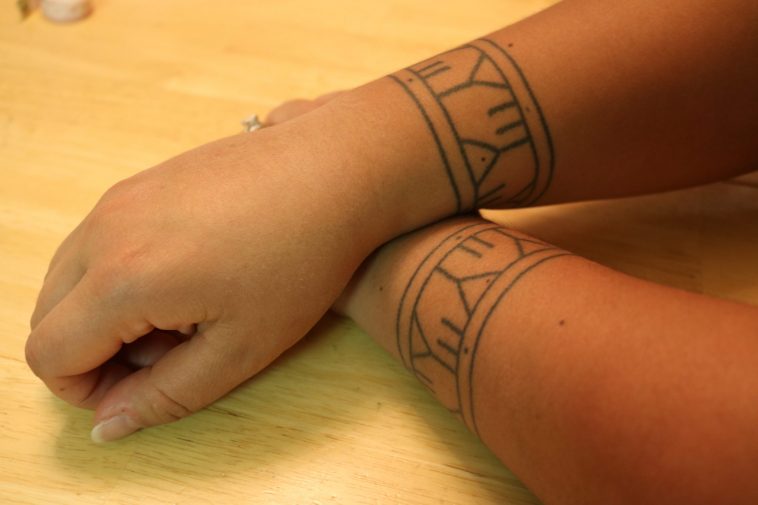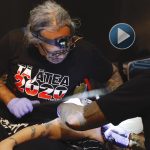Whether to honour family, to develop a deeper relationship with their culture or to carve out a sense of identity, some Inuit women are choosing to get traditional tattoos.
Inukshuk Aksalnik said her identity as an Inuk woman has been shaped by her family.
To honour and remember her family, she got hand-poked traditional tattoos on both wrists in 2016.
“I had these designs stuck in my head and I knew that I wanted to represent my family,” she said.

Each Y-shaped symbol represents a close family member, Aksalnik explained.
Growing up, she recalls her grandmother’s forearm tattooed with dots, which symbolized her life milestones. Following her grandmother’s example, Aksalnik has dots on her wrists.
Besides providing a personal meaning, the traditional tattoos allow her to identify and connect with other Inuit women.
“I feel proud when I see other women have them (traditional tattoos),” said Aksalnik.
Although she recognizes and appreciates that each tattoo means something different to every Inuk woman, she sees traditional tattoos as a way to connect and share stories with other Inuit women.

Nicole Etitiq has been interested in tattoos since she was a child. Over the years, Etitiq’s interest in Inuit traditional tattoos grew as she continued to gain a better understanding of her own identity as an Inuk woman.
She also comes from a family with a history of wearing traditional markings. Her great aunt was the last person in the family to wear these traditional markings.
Etitiq decided to follow her family’s footsteps by adorning her wrists with tattoos in 2017.
Today she proudly wears traditional markings on her fingers, face, chin and neck.
“My tattoos have helped me with my identity as an Inuk woman by connecting myself to a tradition that many of my ancestors and family practiced,” she said, adding “my tattoos empower me on a regular basis.”
Etitiq did not reveal the meaning of her tattoos, but she did explain they help her to be more mindful in every day life.
They also serve as a reminder of Inuit strength for her.
She believes it is every woman’s choice whether they want to receive traditional markings.
“We need to recreate the space in Inuit Nunangat for Inuit women to feel empowered to have traditional tattoos,” she said.
Another Inuk woman, who asked for anonymity, said her traditional tattoos signify her transformation as a woman. The day she graduated from rehab for alcohol dependence, she decided to get traditional tattoos.
“My tattoos are a reminder of what I’ve accomplished and strengthens me in my sobriety when I see them,” she said.
According to her, it is “good to see more woman getting tattoos.”
“I think it was believed that not having tattoos means that you are still a girl, not of age yet,” she explained.


